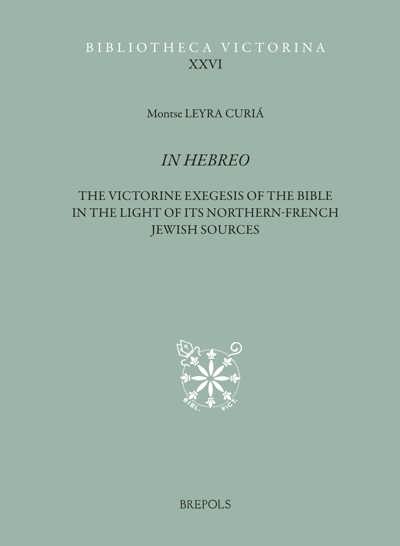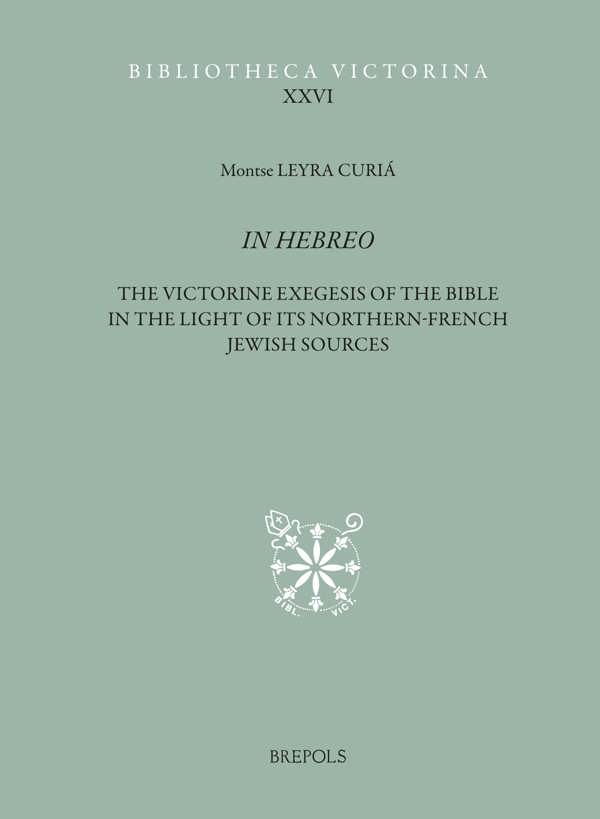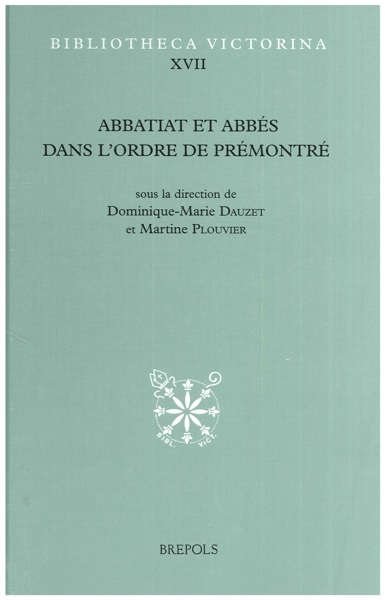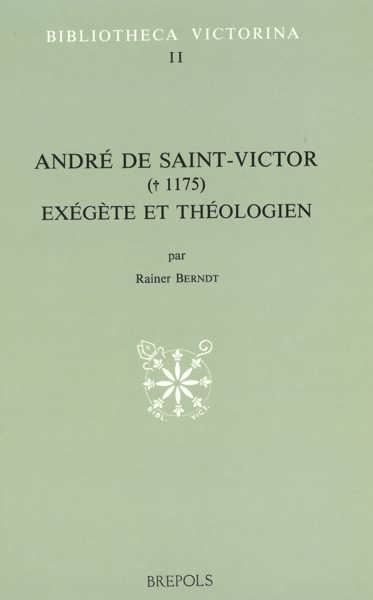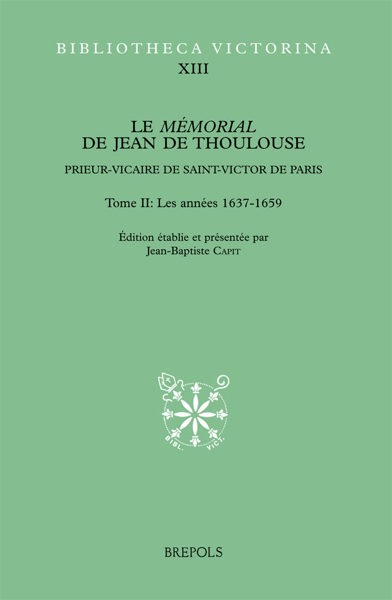
In Hebreo
The Victorine Exegesis in the Light of Its Northern-French Jewish Sources
Montse Leyra Curiá
- Pages: 408 p.
- Size:178 x 254 mm
- Language(s):English, Hebrew, Latin
- Publication Year:2018
- € 105,00 EXCL. VAT RETAIL PRICE
- ISBN: 978-2-503-57542-1
- Hardback
- Available
- € 105,00 EXCL. VAT RETAIL PRICE
- ISBN: 978-2-503-57543-8
- E-book
- Available
“(…) Montse Leyra-Curia has advanced our understanding of the relationship between these Jewish and Christian works. Leyra-Curia is an accomplished scholar of Latin texts who spent many years in Israel mastering the Hebrew language and studying Jewish Bible commentators. This has enabled her to make meticulous comparisons between the Latin commentaries of the Victorines and the Hebrew commentaries of Rashi and others.” (Marty Lockshin, in The Canadian Jewish News, October 2018, p. 35)
“Die Resultate, die Leyra Curiá in ihrem umfangreichen Werk bietet, liefern eine solide Ausgangsbasis für eine solche Einordnung.” (Cornelia Linde, in Mittellateinisches Jahrbuch, 54/1, 2019, p. 201)
“(…) se trata de una obra de indudable valor para conocer cómo la exégesis judía antigua y medieval fue determinante en la explicación del sentido literal del texto sagrado, en un buen número de pasajes, por parte de los autores representativos de la Escuela de San Víctor: Hugo y Andrés de San Víctor.”(Mariano Gómez Aranda, in Estudios Biblicos, LXXVII / 2, 2019, p. 288)
« Fondée sur une longue tradition historiographique, cette étude, qui, à n’en pas douter, fera date, approfondit et renouvelle de manière considérable la connaissance que les médiévistes pouvaient avoir des sources juives des deux Victorins. La méthode rigoureuse et l’intelligence des questionnements permettent d’affiner notre compréhension non seulement de l’apport de l’exégèse juive à l’exégèse chrétienne mais aussi des relations intellectuelles entre les deux communautés au XIIe siècle. » (A. Noblesse-Rocher, dans Revue d'Histoire et de Philosophie Religieuses, 4, 2018, p. 480)
“Montse Leyra’s study and her conclusions are highly significant for all students of medieval Jewish and Christian exegesis of the Hebrew Bible. Her treatments of so many important passages are sound and constitute a virtual source-book that will be widely used by scholars in the field for a considerable time. No library that holds collections of biblical commentaries from the Middle Ages should be without such a helpful vademecum.” (Stefan C. Reif, in Biblische Notizen 183 (2019), p. 150)
“Scholarship on the subject of the relationship between Victorine and Jewish exegesis has been significantly enhanced by Leyra Curiá’s important study.” (Michael A. Shmidman, in Speculum, 94/4, 2019, p. 1187)
“This study is an important contribution to understanding how the Hebraists gained access to Jewish sources and how they used them, and determination of their levels of knowledge of Hebrew and Rabbinic literature. It contains some conclusions which are consistent with well-known observations among scholars of the medieval Hebraism, as well as some innovative insights, deriving from Montse Leyra’s unique skills and her comprehensive work.” (Ari Geiger, dans Revue Biblique, 127/1, 2020, p. 147)
Montse Leyra Curiá has a BA in Semitics (Hebrew and Aramaic) and Classical Studies from the Complutense University of Madrid (Spain), and a MA in Hebrew Bible from the Hebrew University of Jerusalem (Israel), where she wrote her doctoral thesis, under the supervision of Professor Sara Japhet and the late Professor Michael Signer (University of Notre Dame, IN), on the Victorines’ references to the Hebrew text in their commentaries on the Pentateuch and Former Prophets in the light of their Northern-French Jewish sources. She has been a visiting researcher at Notre Dame, IN and taught Classical and Medieval Latin at the University of Haifa (Israel) and the Hebrew University of Jerusalem. She now teaches Latin and Hebrew at San Dámaso University in Madrid.
In the twentieth century a number of scholars pointed to parallels between the in hebreo or secundum hebreos interpretations in the commentaries of Hugh and Andrew of St. Victor and comments in Latin sources and in twelfth-century Jewish writers of the Northern-French school (Rashi, Joseph Qara, Rashbam, and Beckhor Shor). The scholars suggested various hypotheses on the Victorines' direct or indirect knowledge of the Hebrew text of the Bible and the identity of the Jews on whom the Victorines reportedly drew.
Montse Leyra’s book offers a systematic work of comparative analysis between the Victorines' in hebreo interpretations and their parallels in the Latin and Jewish sources, and between these interpretations and parallel biblical readings in the textual traditions of the Vetus Latina, the Vulgate, and the Hebrew Masoretic Text.
In her analysis, Montse Leyra discusses parallels that have gone unnoticed by previous scholars, identifies which sources were a direct source for the Victorines and which were transmitted via later, intermediary sources, and determines whether the Victorines took up textual biblical variants coming from the Vetus Latina and the Septuagint as literal translations of the Hebrew Masoretic Text or they were transmitting the Masoretic text itself. Finally, by studying the parallels of content and exegetical method between the in hebreo interpretations of the Victorines and surviving interpretations of Rashi, Rashbam, Joseph Qarah, and Bekhor Shor, she ascertains whether we can actually identify and distinguish the exegetes of the Northern-French school whose works have been transmitted to us as direct sources of Hugh and Andrew from other Jewish exegetes of their time.
